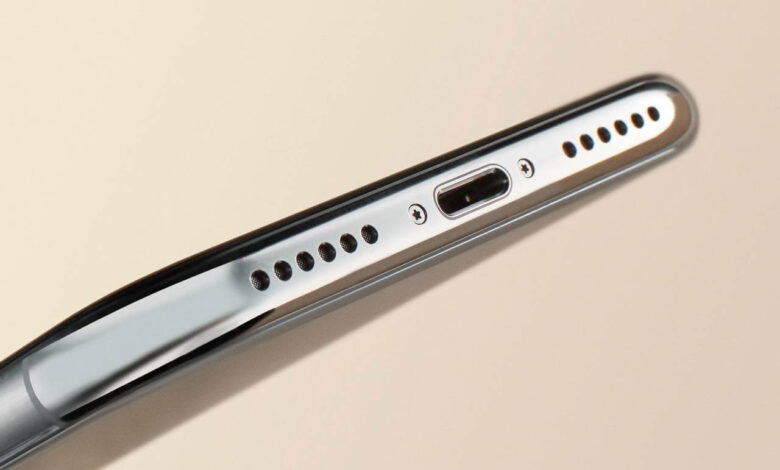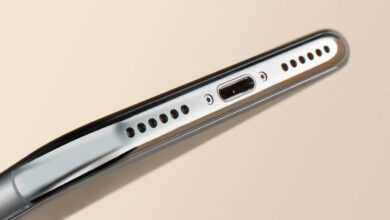Why Does My Phone Speaker Sound Fuzzy? Uncovering Common Causes

When your phone’s speaker starts emitting a fuzzy or distorted sound, it can be quite a disconcerting experience, especially if you rely on your device for important calls or entertainment. This kind of audio issue can detract from the pleasure of listening to music, enjoying videos, or even just hearing the person on the other end of a call. So what’s going on when your phone’s speaker doesn’t sound quite right? Typically, the culprit can range from accumulated debris inside the speaker grill to software glitches that affect audio playback.
Addressing a fuzzy phone speaker often involves some basic troubleshooting, which can include checking the sound settings of your device as well as ensuring the speaker grill is clean and clear of any obstructions. Sometimes the solution is as simple as turning up the volume or wiping away the dirt. However, other factors like water damage, a loose connection in the phone’s internal wiring, or extended exposure to high-volume levels can also lead to sound distortion, suggesting the need for more in-depth remedies or professional repair.
Common Causes of Fuzzy Sound
Experiencing fuzzy sound from your phone speaker can be frustrating. Let’s look at some specific reasons why this might be happening to you.
Debris and Dust Accumulation
- Accumulation of debris: Your phone speaker’s clarity can suffer from the buildup of dust and lint that often accumulates in the speaker grille. This can hinder the movement of the speaker diaphragm, resulting in fuzzy or muffled audio output.
- Cleaning methods: Gently using a soft-bristled brush or adhesive tape can help remove this debris without damaging your speaker.
Water or Liquid Damage
- Effects of liquid: If your phone has been in contact with water or other liquids, it may cause your speaker to produce distorted sounds. Liquids can damage the internal components or leave behind residue that affects sound quality.
- Indicator of damage: Look for a white or red indicator inside the SIM card slot, which can signify water contact.
Software Glitches
- Firmware issues: Outdated or corrupt software can cause fuzzy sound as audio processes might not function correctly.
- Troubleshooting steps: Ensure your phone’s operating system is up-to-date, and consider restarting your device to reset the audio system.
Hardware Issues
When your phone speaker sounds fuzzy, it might be due to physical problems with the speaker itself. Let’s explore these issues in detail.
Speaker Component Damage
If you’ve noticed distortion or fuzziness in your phone’s audio, it could be the result of damage to the speaker components. Factors such as liquid exposure or a hard drop can harm the delicate parts inside the speaker. Look for visible signs of damage, like tears or breaks on the speaker cone or grill, which can severely affect sound quality.
Age and Wear
Over time, your phone’s speaker can suffer from natural wear and tear. Just like any other hardware component, speakers have a lifespan and can degrade with regular use. Aging phone speakers might produce a less clear or muffled sound, indicating it may be time to consider repair or replacement.
Impact of Phone Cases and Accessories
In the quest for pristine sound, your phone case or add-on accessories might be the stealthy culprits behind fuzzy audio quality.
Cases Blocking Speaker
Your phone case is designed to protect, but it can inadvertently muffle or distort sound if it obstructs the speaker. Cases that are too bulky or improperly fitted could cover the speaker grills, leading to a reduction in sound clarity. When selecting a case, make sure the design does not block any ports or speakers.
- Check: Look for cases with precise cutouts around the speaker area.
- Test: Remove the case to see if there’s an improvement in sound quality.
Third-Party Add-Ons
Accessories like external lenses, camera attachments, or pop-up grips can sometimes overlap the speaker area. Even stick-on card holders can create enough of a barrier to affect sound.
- Assess: Notice if any add-on changes the sound when attached.
- Choose Wisely: Opt for add-ons that attach away from speaker grills and ensure they are compatible with your phone’s design.
Audio Settings and Equalization
Ensuring optimal listening experience on your phone involves tweaking audio settings and understanding equalization. These adjustments can make a significant difference in reducing audio fuzziness.
Volume Levels and Distortion
Playing audio at high volume levels can cause your phone’s speaker to distort, leading to fuzzy sound. Keeping the volume at a moderate level helps maintain clarity and prevents damage to the speaker components.
- Maintain a Moderate Volume: To avoid distortion, keep your volume around 60-70% of the maximum.
- Avoid Maximum Volume: Persistently high volume can degrade speaker quality over time.
Equalizer Adjustments
The equalizer in your phone’s audio settings lets you adjust various frequency ranges, which can sharpen or muffle the sound. Use it to reduce muddiness or add clarity and depth to your audio.
- Low End Range (60-250Hz): Adjusting this range can add or reduce thump and fullness.
- Low Mids (250-500Hz): Tweaking this range affects the warmth and body of the sound.
Remember to clean your speaker regularly, as built-up dust and debris can also affect sound quality.
Troubleshooting Steps
If your phone speaker is sounding fuzzy, there are a few key troubleshooting steps you can take to potentially clear up the issue without needing a repair or replacement.
Restarting Your Device
A simple yet often effective fix is restarting your device. This can resolve temporary software glitches that may affect your speaker’s performance. Press and hold your phone’s power button, then select the ‘Restart’ or ‘Reboot’ option. Once your device is back on, test the speaker to see if the quality has improved.
Checking for Obstructions
Your speaker’s sound quality can be significantly diminished by obstructions like dust, lint, or debris. Inspect the speaker grilles for any visible blockage. If your phone has recently been exposed to water, it might be beneficial to eject water from your phone’s speakers, as trapped moisture can distort sound. Remember to use a soft, dry brush or a piece of tape to gently remove dust without causing damage.
Software Updates and Resets
Updating your device’s software can resolve many underlying issues. Check if there is a pending update by going to your phone’s settings and navigating to ‘System updates.’ Install any available updates and restart your phone. If problems persist, consider a factory reset but ensure you back up important data as this will erase all information on the device. If these steps do not resolve the issue, your speaker may need professional servicing.
Professional Repair and Services
When your phone speaker’s issues persist despite all troubleshooting efforts, it may be time to consider professional repair services.
When to Seek Professional Help
If you’ve tried cleaning the speaker grille, adjusting the volume, and disabling potentially conflicting settings but your phone’s sound remains fuzzy or crackly, seeking professional help is a wise next step. This is especially important if you suspect internal damage, such as:
- Water damage that has not resolved after drying out your device
- Distortion that worsens over time, indicating a possible hardware failure
- Loose components inside the phone, which you shouldn’t attempt to fix on your own
Costs and Considerations
Before committing to professional repair, it’s essential to weigh the costs and considerations. Here’s a brief breakdown:
-
Warranty status: Check if your phone is still under warranty, as this can significantly reduce the repair cost or even allow for a free fix.
-
Repair costs: While costs vary by service provider and issue severity, expect to pay:
Issue Estimated Cost Range Cleaning services $20 – $50 Minor component fix $30 – $100 Speaker replacement $50 – $200
Keep in mind a repair might not always be worth it, especially if the speaker issue is on an older phone model. In some cases, investing in a new device could be more cost-effective in the long run.
Preventive Measures and Care
Maintaining your phone speaker’s clarity and quality is simpler than you might think. Here are focused strategies that can make a significant difference in preventing fuzzy sound issues.
Regular Cleaning Routines
Keeping your phone’s speaker clean is essential to prevent dust and debris buildup which can muffle sound quality. Here’s how to do it effectively:
- Weekly Cleaning: Use a soft, dry, lint-free cloth to gently wipe the surface of your speaker.
- Soft-Bristled Brush: Occasionally, employ a soft-bristled brush to dislodge any particles from the speaker mesh without damaging it.
Protective Accessories
Protect your phone speaker from external damage and wear with the right accessories:
- Cases: Choose a case that has clear speaker grills to resist dust infiltration while still allowing sound to flow freely.
- Screen Protectors: Opt for a design that doesn’t overlap the speaker area to prevent sound obstruction.
Conclusion
Encountering fuzzy sound from your phone speaker can be a notably frustrating issue but addressing it is often straightforward. Firstly, ensure your speaker is clean; dust and lint can be gently removed using soft tools such as a cotton cloth or a soft-bristled brush.
In some cases, reducing volume levels might alleviate distortion, as high volumes can strain the speaker. It may seem simple, but it’s effective—give it a try.
Another step is to check the cables and connections if you’re using external audio devices; make sure everything is secure and consider replacing any cables that look worn or damaged.
Moreover, be aware of your surroundings – electronic interference from nearby devices can negatively impact sound quality.
If these steps don’t resolve the issue, it might be due to internal problems such as outdated audio drivers or hardware issues, in which contacting professional support or visiting a technician might be necessary.
Remember, it’s important to approach this systematically, checking off potential causes one by one. Here’s to clearer sound and less frustration!
